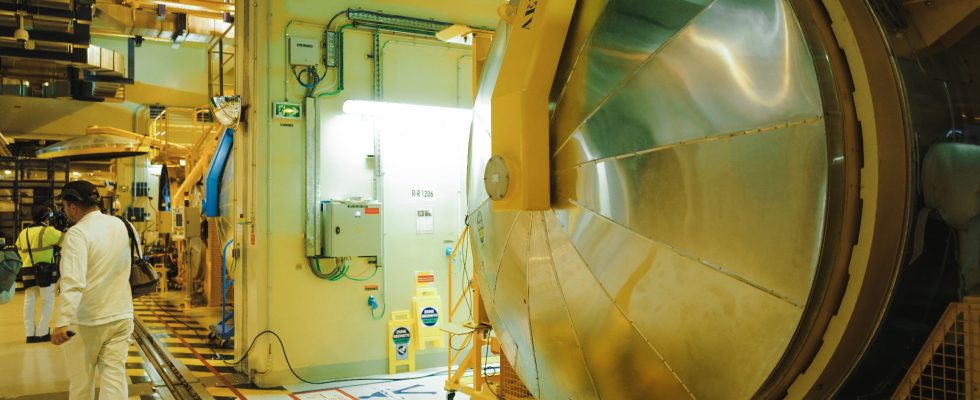Uranium shortage announced: do we still have the choice of nuclear power for 50 or 5,000 years? Electricity of nuclear origin, like any production system, does not escape the question of the availability of the resource. It is even a major challenge for the future of global energy since nuclear power is, with hydraulics, the only controllable source of carbon-free energy. However, in France, one of the first nuclear countries in the world, industry leaders neglect existing resource assessments. The pretext put forward is the simplistic one of a price of uranium which would be low enough to postpone the development of fast power reactors (FNR).
However, only FNRs are capable of fissioning all of the natural uranium, which cannot be used in slow neutron reactors (PWR, EPR), because these are designed for the fission of uranium 235, the only fissile isotope, but very rare in ore (0.7%). Following decades of strategic wandering, masterfully revealed by the Parliamentary Commission of Inquiry into the reasons for France’s loss of sovereignty, the lack of anticipation, the absence of vision, incompetence and casualness on these regal subjects continues. In a world where crises are multiplying, energy, climate, geopolitical, the use of nuclear energy is becoming a necessity for an increasingly large number of countries.
Therefore, the inventory of identified uranium resources in the earth’s crust shows that they will be insufficient to maintain nuclear power production for a long time based on the fission of uranium 235 alone. In 2023, more than 438 reactors will operate in the world, mainly REPs, around sixty are under construction, 110 are planned and more than 300 under study. THE Red Book 2024 announces a growth in global nuclear power of 50% by mid-century, or an annual growth of 1.6%. During COP 28, around twenty countries, including France, committed to tripling global nuclear power over the same period, which would bring annual growth to 4.5%.
The reality, which will probably be somewhere between the two, will bring global consumption to the limit of the ceiling of identified uranium resources – approximately 8 million tonnes – around the middle of this century. From 2050-2060, it will be pointless to invest in PWR or EPR type reactors, whose lifespan is at least sixty years. Ethics should have long ago required us to switch to sustainable nuclear power which, thanks to FNR, uses all the resources without wasting them and multiplies its operating life by a hundred. Instead, speculative considerations as to the price of uranium blind us to the depletion of the resource: the coming uranium shock is a predicted geological reality which will impose itself, more or less quickly, between 2050 and the end of the century. Countries that have not made the switch to RNR in time will be out of the race.
France, which was at the forefront thirty years ago, now runs a serious risk of definitively closing its nuclear parenthesis. After the shutdown of Superphénix in 1997 and the abandonment of Astrid twenty years later, its “relaunch” and “acceleration” program is on bad track. We are paying lip service: the “new nuclear” – the EPRs announced to restore the sector – is in reality a nuclear catch-up. The “nuclear power of the future” is falling into the dead end of multi-recycling in PWR which destroys the plutonium essential for FNR. Without political will put into action, without vision or overall coherence, without a corresponding research program, French nuclear power is restarting towards its announced end.
This waste is all the more unacceptable since our country has several hundred thousand tons of natural uranium on its soil, inherited from its nuclear history, sufficient to ensure millennia of electricity production. He also masters rare skills in fuel reprocessing which have enabled him to accumulate a sufficient quantity of plutonium to immediately start several power RNRs! Finally, these strategic energy resources could free it from serious and growing geopolitical risks linked to supply.
The urgency to pull ourselves together is absolute
In this context, what can be the point of the blindness of leaders who are indefinitely delaying the start of RNR in France, when China, India, Russia, Canada and Japan are pushing ahead? Is it ethically acceptable to go as far as the exhaustion of uranium 235, to leave to our grandchildren a world where no self-sustained chain fission reaction would be possible? Will the legislator take back control to give our country its chances of energy autonomy for thousands of years, without a decision of this magnitude being preempted by the incompetence installed at the highest levels of government? the state?
It is important to understand, contrary to the current discourse in the sector, that there is no continuity between slow neutron nuclear power (REP, EPR) condemned to disappear with uranium 235, and sustainable nuclear power. . Multirecycling in REP is not a “step” that would prepare the RNR as we have heard! Contrary to this sales pitch, sustainable nuclear power is, on the contrary, disruptive nuclear power, both in terms of raw materials, reactors, laboratories and factories. It enhances the resource for millennia.
In this regard, playing time on the launch of FNRs is a boon for opponents of nuclear power, as much as a heavy burden on the interests of EPRs. The EPRs only make sense if the RNRs are engaged. Remember that the development and qualification of a power RNR prototype such as Astrid – stopped in defiance of the law of June 28, 2006 which required it to be put into operation in 2020 – requires at least fifteen years in a efficient research environment. The industrial deployment of FNR and ad hoc installations dedicated to fuel will take several decades more. The urgency to pull ourselves together is absolute.
* Claire Kerboul, doctor of physical sciences, specialized in nuclear physics, is the author of The urgency of sustainable nuclear power (Ed. De Boeck Superior)
.
